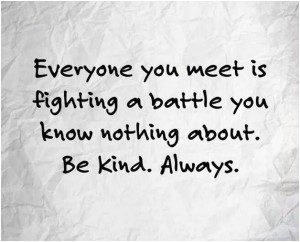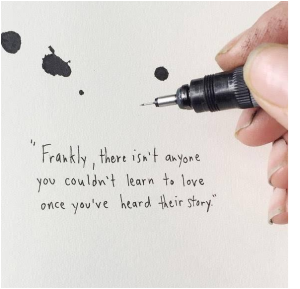The other day, I got a message from a friend who sent me something she wrote. It was akin to a journal entry, and with it, she had simply said something along the lines of, “Had a rough day and wrote about it if you want to read.”
Of course I want to read, I thought. I read through it, and immediately messaged her back, letting her know how glad I was that she shared, how much compassion I felt for her experience, how I could relate and understood, and that I would be happy to hear more, read more, or talk at any point.
What she did – reaching out, without qualifying it, without apologizing, without drowning herself in shame, is still hard for me. Not always, but often. Especially when what I want to reach out and talk about feels big.
And I get stuck in spinny loops of thinking, but the problem with spinning thoughts is that when you’re having them, they seem incredibly logical.
Maybe I should call her and ask if we can chat. Wait. She’s been so busy at work, and I remember her talking about how tired she is. So really, if I asked for an hour of her time, it would be adding to her stress, therefore burdening her, therefore I am a burden. Good thing I thought this through, not a good plan to reach out.
Yes, of course, looking at that now it’s clear how illogical it is. But when you’re in it, you don’t see it.
Which is why I have conversations like this with my therapist:
Me: So this week I’ve been really feeling like I need to reach out and connect and talk about those things on my mind but I just haven’t.
Her: Oh? Why?
Me: Because those things are big and heavy and I don’t want to be a burden and dump on someone.
Her: Nothing you’ve ever told me indicates that you unfairly dump on people.
Me: But people are busy and have their own stressors and I don’t want to add to that.
Her: Hmmmm. [eyebrows raise]
Me: I know, I KNOW. I already heard your voice in my head yesterday about it, telling me, What would you do if the tables were turned? Would you view a friend needing to check in with you, because she was having a hard time, as burdensome and ‘too much’, even if it was a big or heavy topic? And no, the answer is no.
Her: [laughs, because in therapy, I’m hilarious]
Me: But it’s different. I mean, I know it’s not actually different. But it is. I just worry and feel afraid.
That’s the part where she encourages me, dispels all my arguments, and then (nicely) tells me that enough is enough. That if I need connection, if I need a conversation, I need to ask for it. I need to not sit back and hope that someone turns into a mind-reader and figures out that there’s something I want to talk about. I need to think of those people who have always responded to me with empathy, and not just sympathy, those people who have unconditionally said, I’m here, say whatever it is you need to say, no matter how big or intense. I need to go up to those people and, just as my friend did by sending me her message, say to them, Okay. I need to say it.
Because:
Right?
I also saw this article yesterday, which seemed to tie in nicely as well, and also help me sort through the thought processes that I default to. Lots of thoughts on that.
I am so interested in this topic, in trying to figure it all out. Does anyone else do this, where there are times that you hold yourself to a higher (or lower) standard than you would others? Where you can so clearly act in one way, but are afraid of doing it when the tables are turned? I am equally fascinated by the difference in how I feel when I am met with empathy vs. sympathy. More to write on that some day.
Anyway, I’m working on it. Working on reaching out, making the moves, despite the fear, despite the anticipatory worry. Whatever it’s about, however big or small it seems. It’s a good exercise, really, to ask for what we need. And something I suspect that many of us don’t do enough.


 at about her but I considered myself privileged to learn more about her personal life.
at about her but I considered myself privileged to learn more about her personal life.